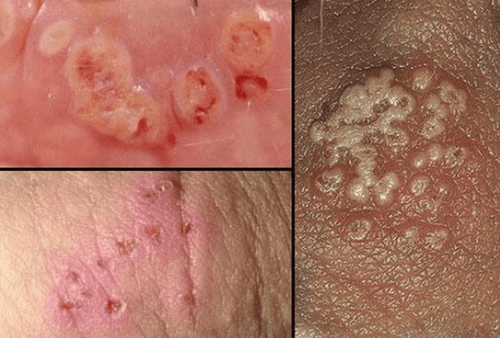This article was professionally consulted by Dr. Nguyen Van Dinh - Head of the Respiratory - Asthma - Allergy - Clinical Immunology Unit, Vinmec Times City International General Hospital.
Condom allergies are common in people with sensitive skin. When having the disease, some symptoms such as genital itching, hives, swelling, etc. will occur. Therefore, patients should see a doctor for safer condom use for contraception and prevention of sexually transmitted diseases.
1. Are condom allergies common?
Feeling itchy in the genitals after sex without determining the cause can be a manifestation of condom allergy. Any ingredient in the condom, such as spermicide, can cause an allergic reaction.
According to surveys, condoms made from Latex (the main ingredient is rubber latex) is the most common cause of allergies. According to the Centers for Disease Control and Prevention (CDC) in the US, about 1 to 6% of people are allergic or sensitive to this type of condom.
2. What are the symptoms of condom allergy?
Condom allergy often causes local symptoms in most cases. These symptoms only appear in areas of skin that are in direct contact with the condom.
In the case of local allergy, the patient will experience symptoms such as itching, skin swelling, hives, redness, and blistering...
In addition, serious symptoms such as systemic allergy will easily appear in people with sensitive skin. Women are often affected by this allergy because the mucous membrane in the vagina absorbs latex protein faster than the membrane in the penis of men.
Signs of a systemic allergy include: hives, swelling in areas not exposed to the condom, as well as a runny or stuffy nose, sore throat, watery eyes, and flushing of the face.
In certain cases, anaphylaxis - a severe, life-threatening allergic reaction - can occur. If you notice signs such as difficulty swallowing, difficulty breathing, or swelling in the mouth, face, or throat, you should see a doctor immediately.

3. Causes of condom allergy
Many types of condoms today are made from natural rubber tree sap, the proteins in this material can be allergens for many people. When the immune system is allergic to latex, it mistakes these proteins as harmful “invaders” and produces antibodies to fight them. The result of this immune response is itching, dermatitis, or other allergic symptoms.
Factors such as spermicides or genital lubricants in condoms are also causes of allergies. In addition to causing itching, people with the disease can also get yeast infections or bacterial vaginosis because these ingredients also stimulate bacterial overgrowth.
A study conducted in 2002 showed that about 30 - 50% of people with latex allergies are also allergic to some plant foods because these foods contain proteins with a similar structure to the substance in latex. If you are allergic to foods such as avocados, bananas, kiwis, chestnuts, tomatoes, bell peppers, or potatoes, you are more likely to have a latex allergy.

4. What should patients do if they are allergic to condoms?
Although latex is the main material for most condoms, there are many alternative condoms available today that are quite safe. Patients can try using the following types of condoms:
- Polyurethane condoms are made from polyurethane (a synthetic rubber material) and are effective in preventing pregnancy and protecting against sexually transmitted infections (STIs). This product is thinner than latex condoms, allowing for better heat transfer, and helping couples experience a more realistic feeling during each intercourse. In addition, this condom is compatible with most lubricants - something that not all condoms have.
- Polyisoprene condoms: The newest synthetic rubber on the market is Polyisoprene. Polyisoprene condoms are the perfect choice for those who are allergic to latex or polyurethane. With better heat conduction than latex, this product brings a natural feeling to couples during sex. However, this type of condom is only for men and is used with water-based or silicone lubricants.
- Lambskin condoms: Before the development of latex, lambskin condoms were the oldest type of condom used. This product is made from the intestinal membrane of sheep and is loved by many users for its realistic feeling and increased pleasure during sex. However, due to its porous nature, this condom can be penetrated by viruses, increasing the risk of sexually transmitted diseases.
5. When to see a doctor?
Patients should consult a doctor if the allergic symptoms last for more than one or two days or continue to be allergic despite replacing other types. These symptoms may be caused by infections or other underlying causes, so patients should be treated early.
To check for sexually transmitted infections (STIs) and bacterial infections, your doctor will perform diagnostic tests and a physical examination. Most genital infections can be effectively treated with antibiotics. However, some infections can lead to serious complications, especially infertility, if not treated promptly.
To arrange an appointment, please call HOTLINE or make your reservation directly HERE. You may also download the MyVinmec app to schedule appointments faster and manage your reservations more conveniently.
Reference source: healthline.com














